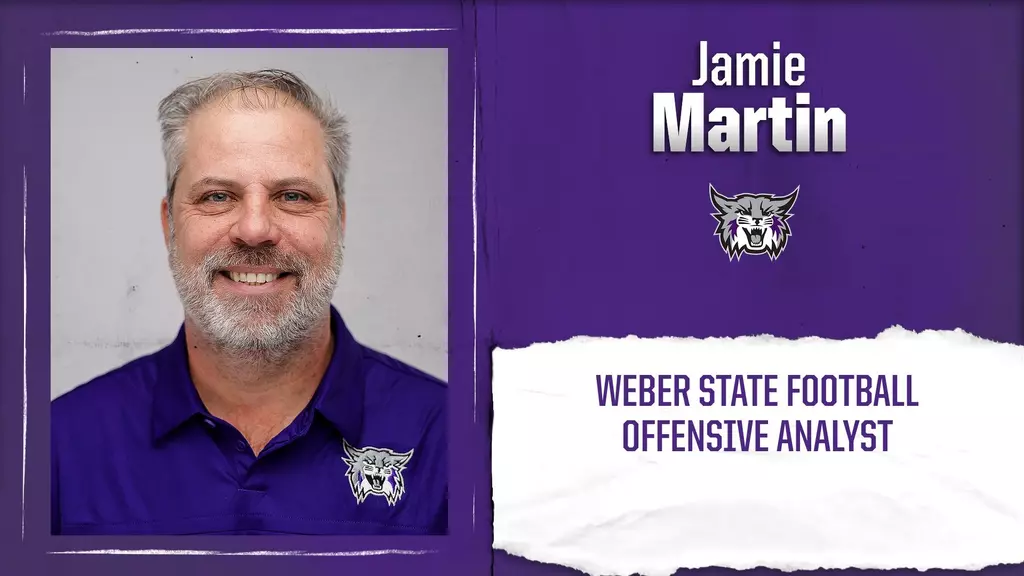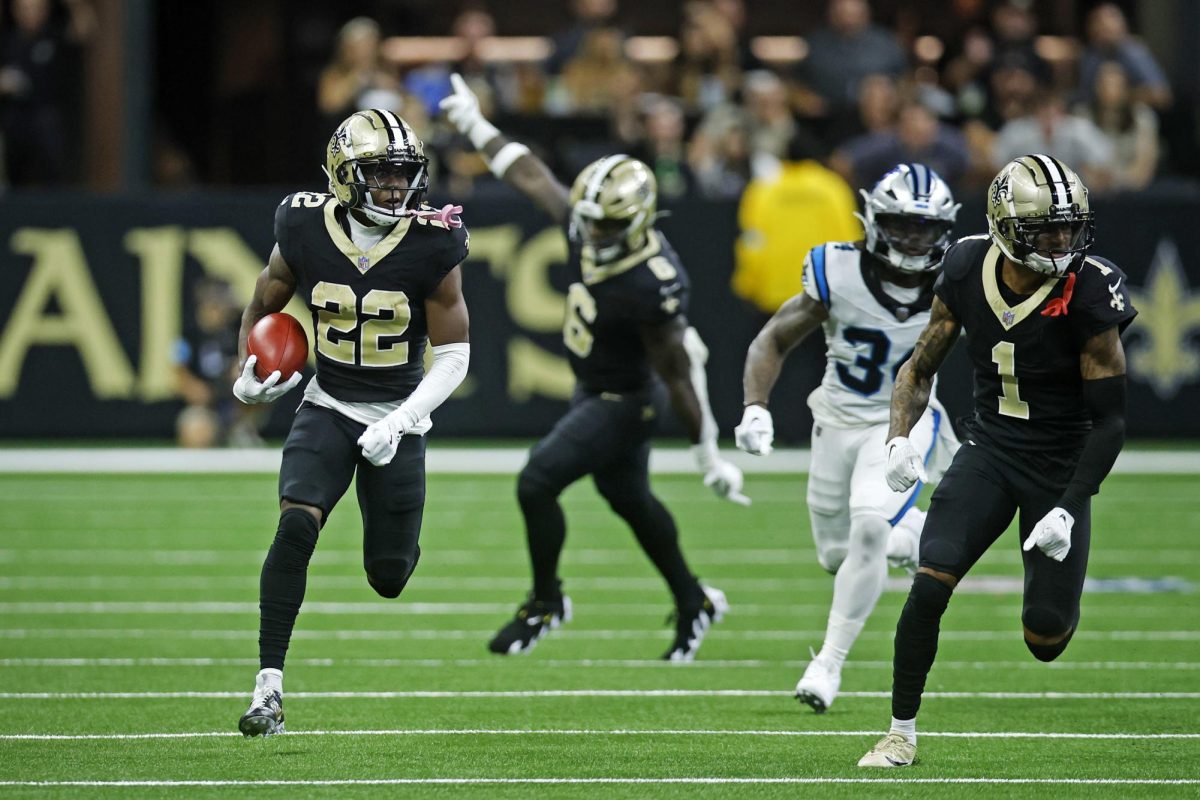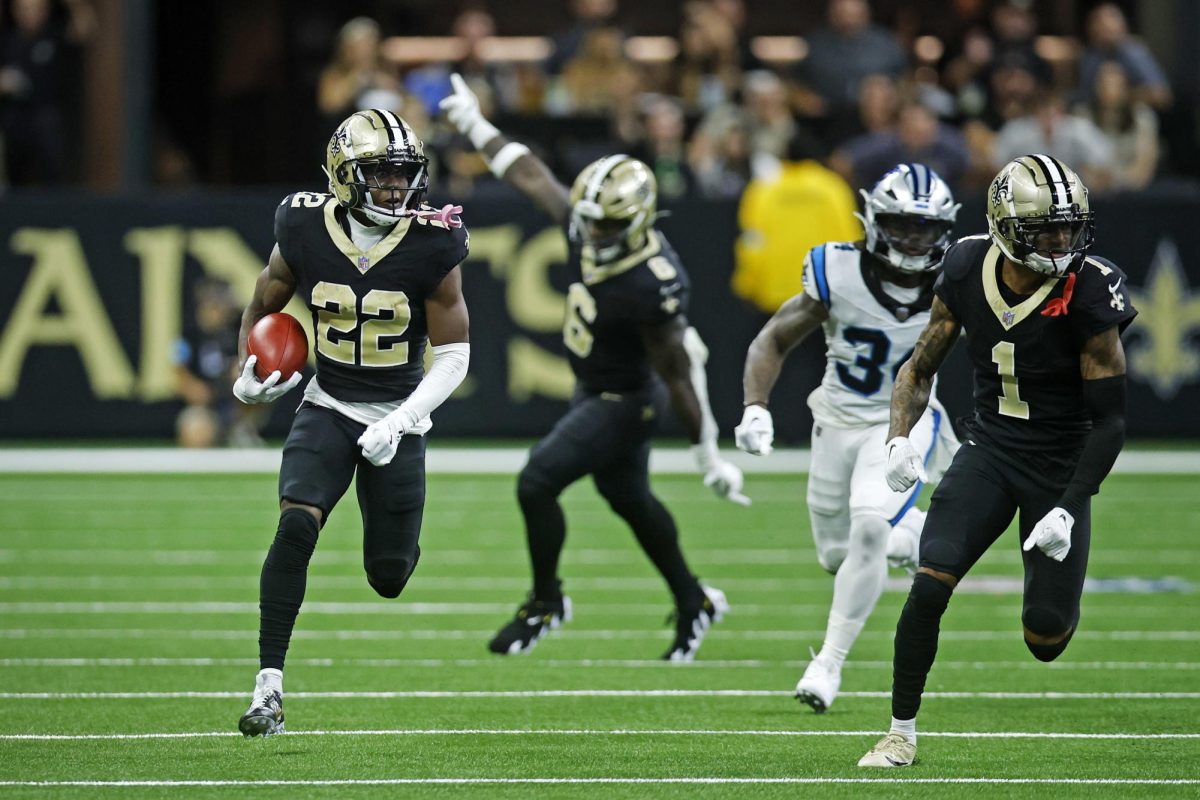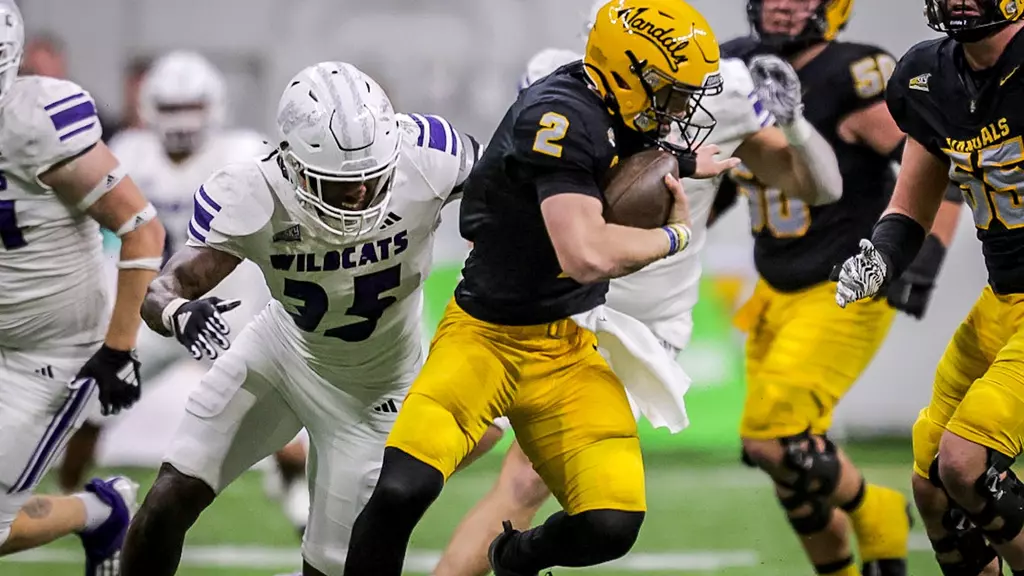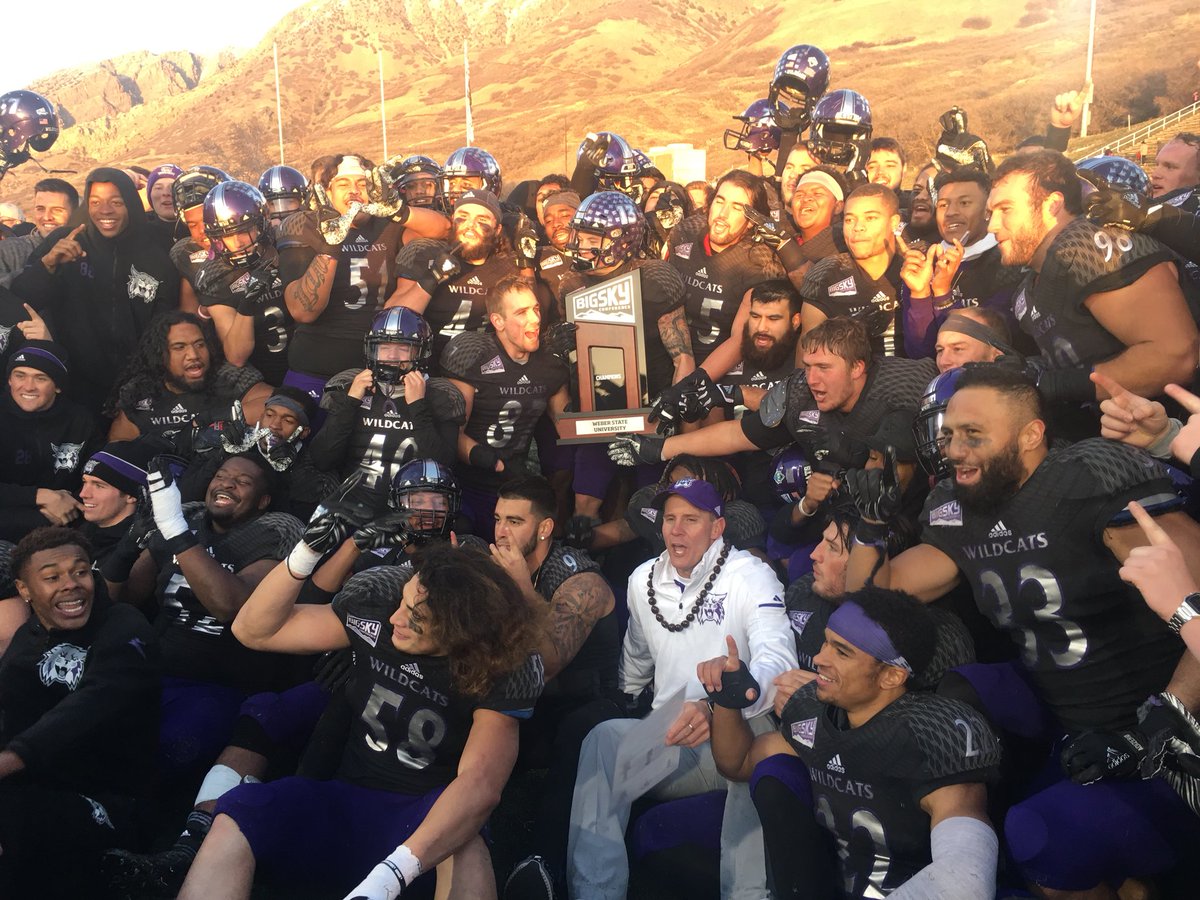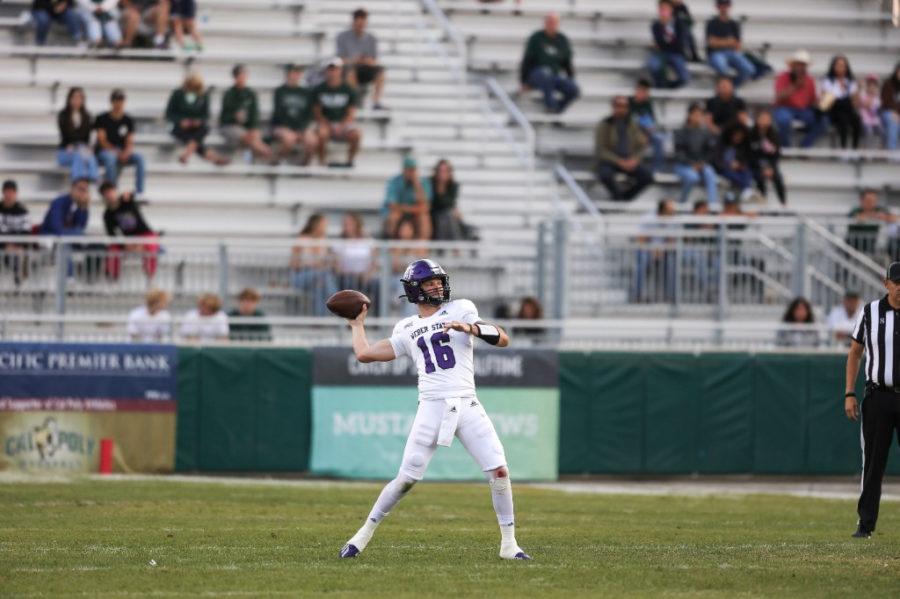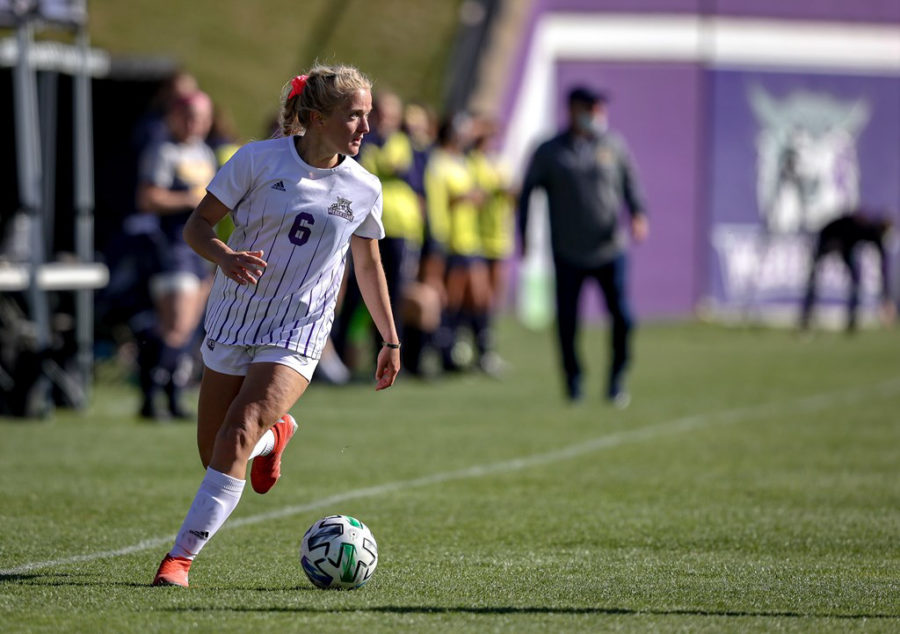Weber State quarterback Jake Constantine dropped back to pass on 4th and 12 and appeared doomed to be sacked. He somehow fought away from three defenders, threw up a Hail Mary type pass that was hauled in by Devon Cooley in the back of the end zone, but was instantly ripped from his grasp by a Maine Black Bears defender.
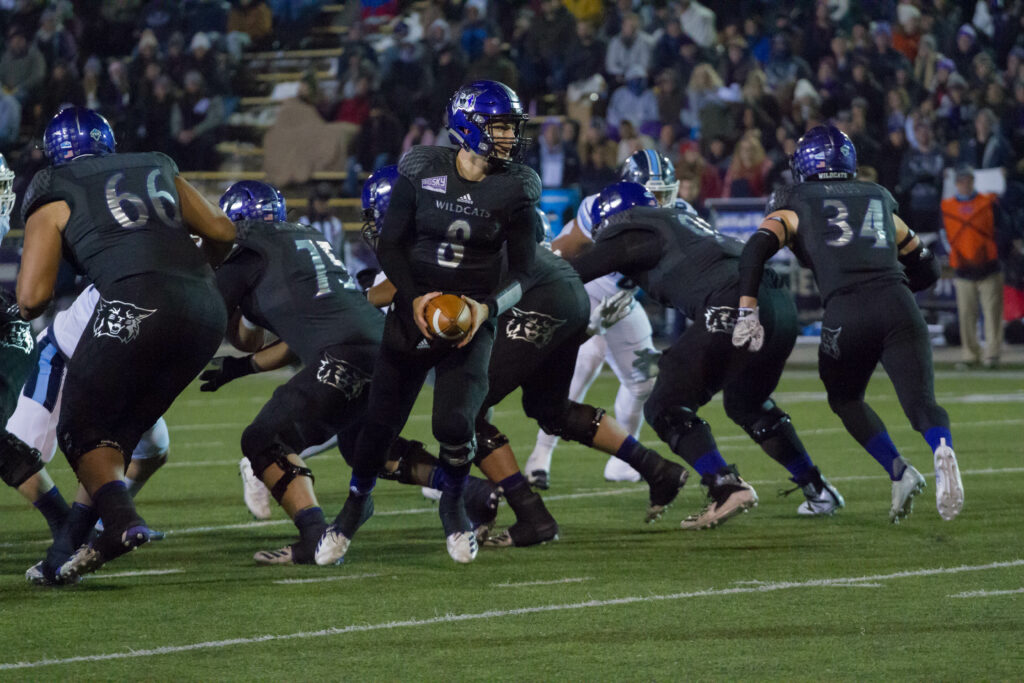
For five minutes, a national ESPN2 audience anxiously waited to see if the play would be called a Weber State touchdown or a Maine interception. It was December 7, 2018 and the Wildcats were playing in a quarterfinal playoff game at home.
“Walking down the sideline, I knew that ball was mine. I went up and got it,” Cooley said. “I knew I came down with it.”
Five years ago, this would have been unimaginable. Weber State football on national television in the FCS Playoffs? Getting past two wins was an accomplishment in the early 2010s.
Yes, the Wildcats would go on to lose this game to the Black Bears despite the play being called a touchdown. But WSU has been through seemingly all the ebbs and flows of college football in the last decade and this served as a microcosm of what the team is on the cusp of achieving.
Weber State was sitting pretty with Ron McBride as head coach in the mid to late 2000s. The well respected McBride held the reins at the University of Utah for over a decade before coming to Ogden in 2005.
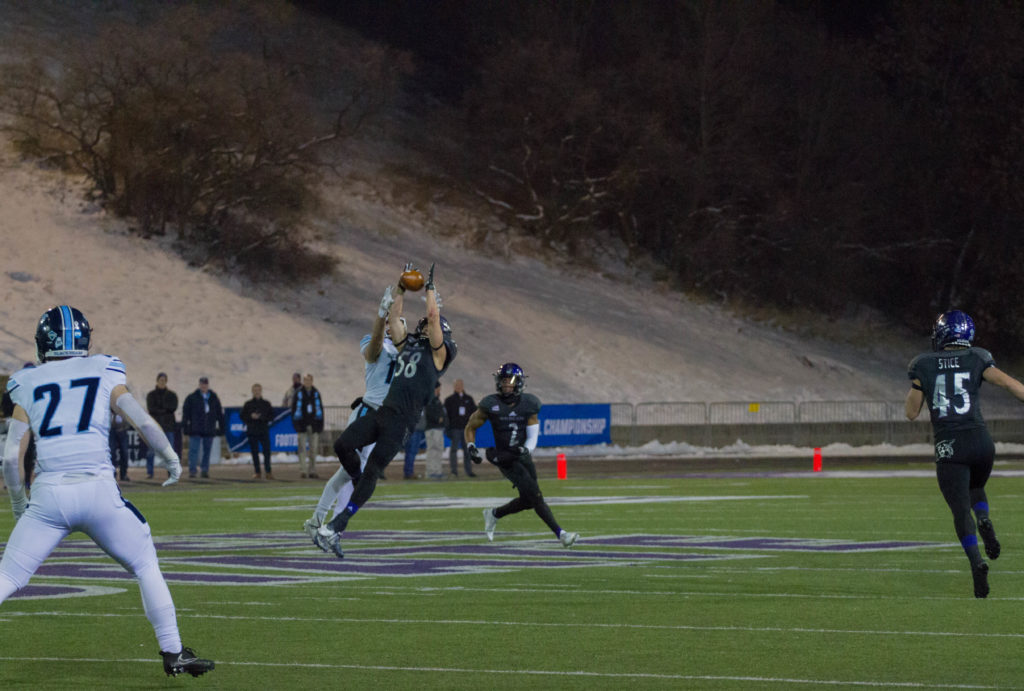
He helped a struggling program get on its feet, reaching the FCS Playoffs in 2008 and 2009. McBride eventually retired at age 72 after the 2011 season.
WSU finished a respectable 5–6 in McBride’s final year and he felt confident that the team would be on the upswing even after his departure.
“The team I left was really good,” McBride said. “They were young but in good shape. I was hoping everyone would stay together without any transferring.”
What happened next was unimaginable. After the 2011 season, WSU hired John L. Smith, who played both linebacker and quarterback in Ogden, to be the team’s next head coach. The Smith era lasted all of four and a half months.
Unforeseen circumstances at the University of Arkansas created a situation in which the Razorbacks were in need of a head coach. They swooped Smith away from Weber State, leaving the Wildcats turn to Jody Sears as its new leader. Sears had been hired by Smith as defensive coordinator a mere three months earlier and was now in charge of a full-blown rebuild.
The ‘Cats lost their identity under Sears. Weber State went 4–19 two years with him at the helm, and the results were as ugly as they looked on paper. WSU gave up an average of 37 points per game while being outscored 849–429.
“It was horrible to watch,” McBride said. “It was very disappointing because we spent seven years building the program only to have it go to ground zero in two years. It was just tragic.”
Director of athletic communications Paul Grua, who has worked at Weber State since 2004, said he felt the program was thrown into disarray following Smith’s sudden departure but also due to a challenging schedule.
“When (Smith) left it kind of spiraled a lot of things. In Sears’ defense, he was kind of handed the reigns in a tough situation,” Grua said. “We had a tough schedule too. (Sears) had to play BYU and Fresno State the first year, had to play Utah and Utah State the next year as well as McNeese State on the road.”
The FCS-FBS games were not kind to the Wildcats, especially in 2013. WSU fell at the University of Utah 70–7 before dropping their contest to Utah State in Logan 70–6. Grua said these results led athletic director Jerry Bovee to rethink his philosophy for finding non-conference opponents.
“We try to avoid two FBS games unless it’s a 12-game season,” Grua said. “Since 2013, we haven’t done that and it has made a big difference.”
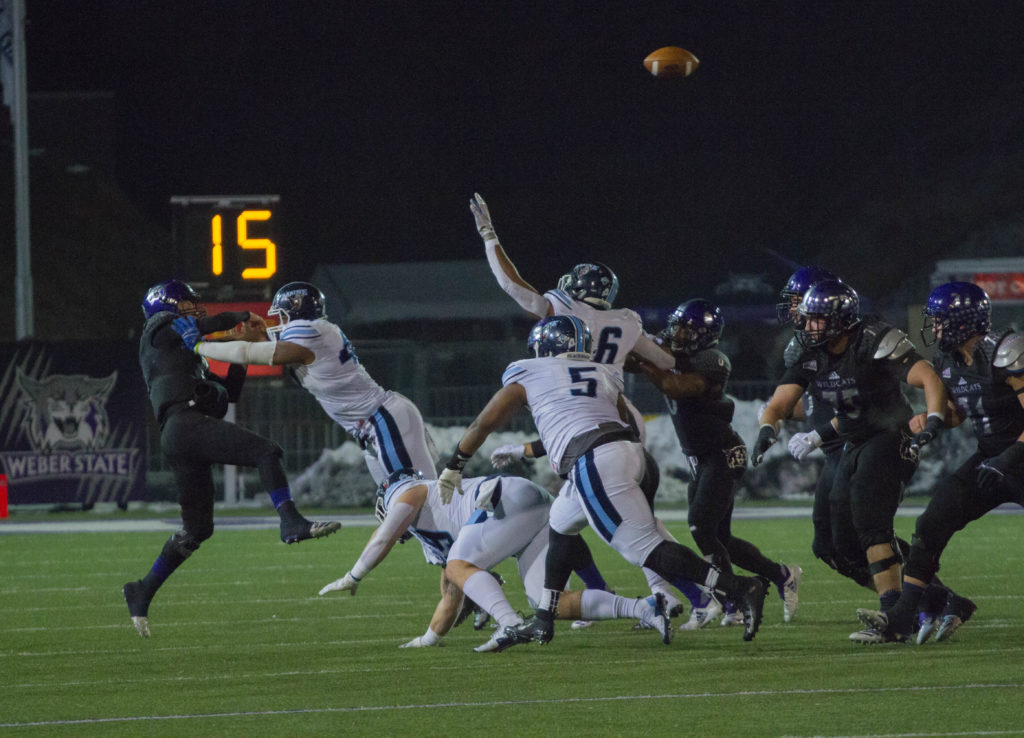
Weber State’s defense has been on the rise the last four years, becoming one of the most feared groups in the FCS. However, the defense first went through a rough patch that included surrendering a program record 41.4 points per game in 2013.
Jay Hill, a defensive-minded head coach, has completely changed the philosophy of defense at Weber State. He now leads a group that held opponents to a record-low 17.6 points per game in 2017 as well as just over 20 points in 2018.
McBride coached Hill as a linebacker at Utah in 1998 and 1999. He said he was confident that Hill would turn around Weber State’s program after he was hired.
“They are very well coached under Jay Hill,” McBride said. “Kids play with a lot of passion. He has recruited speed and toughness. The program is in great shape and it should last.”
Hill said he has been fortunate to work with defensive players such as Devonte Johnson, Taron Johnson, Tre’von Johnson and McKay Murphy. All four of them have reached the NFL.
Most notably, Taron Johnson was drafted in the fourth round by the Buffalo Bills in 2018 and had a successful rookie season. His most notable accomplishments included a sack and forced fumble of Green Bay Packers star quarterback Aaron Rodgers, then intercepting Titans signal-caller Marcus Mariota later in the year.
Grua said a big difference has been the recruiting process that Hill goes through. Hill has a knack of recruiting players who display positive attitudes and hustle on and off the field. He wants quality individuals who are successful in life to join his team.
“His recruiting has improved the quality of players,” Grua said. “He’s done that in the sense that he has had players buy into what he wanted. I think it took a few years and he will even admit that there were struggles in his first year or two. He’s really got that magical touch and they have been able to turn into a balanced team.”
Hill has worked with many defensive coaches in his first five seasons and has a lifelong appreciation for their efforts.
“They are everything to me,” Hill said. “They’re the ones in the film room grinding and doing the hard work. I have the fun job. I just get to go call it on gameday.”
Hill also noted that he has lost a lot of assistant coaches to higher positions at other schools, but has also kept many and is grateful for them.
Former Weber State cornerback and special teams playmaker Xequille Harry said it meant a lot to have his four years as a player coincide with Hill’s first four seasons as head coach.
“It’s a family dynamic. I was part of Coach Hill’s first recruiting class in 2014 and when I got there it didn’t seem like there was a family aspect to the team,” Harry said. “Coach Hill instilled that aspect into the team along with holding people responsible, getting everyone to buy into the team and hiring great coaches.”
Harry’s final career game at WSU was also played in front of a Friday night national ESPN2 audience. The Wildcats battled neck and neck with top-ranked James Madison University in Virginia, holding the lead for most of the game. Weber State ended up falling in heartbreaking fashion when a last-second field goal split the uprights for the Dukes.
Harry graduated after the 2017 season and moved to Europe to play professional football. He watched the 2018 season-ending loss to Maine on television and said the key for the team going forward is to believe they can make it past the quarterfinals.
“They need to believe they can make it,” Harry said. “It’s like my junior year to my senior year. We made it to the playoffs for the first time in a while and my senior year we believed that wasn’t enough for us. We had confidence in making out of the first round and taking it game by game. We just came up short against James Madison.”
Constantine has not been the starting quarterback at Weber State for very long, but he is aware of what the program has been through in the last decade.
“I was grateful to come here out of junior college and into a winning program,” Constantine said. “That made my job a lot easier. There is nothing better than the tradition Coach Hill brought into this program. He has solid discipline and we are all brought into his plan of winning.”
As the Wildcats continue their quest to bring home their first-ever national championship, Constantine is feeling confident in his team.
“We need to get over that hump in the playoffs and make it to the national championship,” Constantine said. “This program is definitely good enough to do that. I think we should have been there the year before I got here and then last year as well. We have leadership now, and I think this is the year we get over that hump.”


